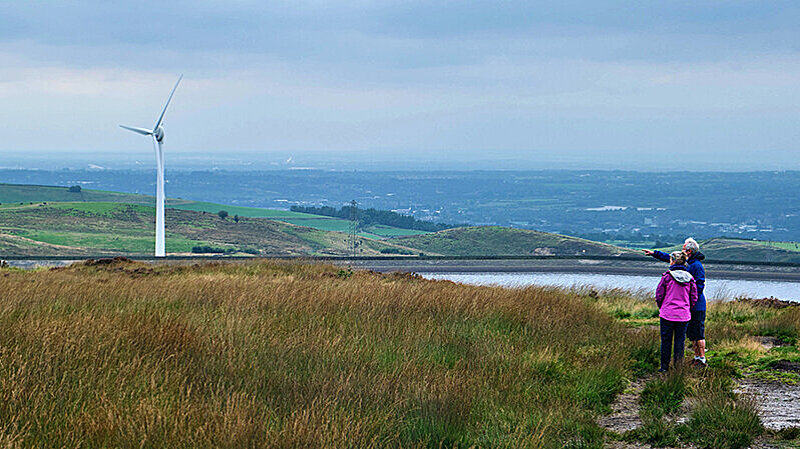At last, renewables might pay off for Highlanders

Letter to the Inverness Courier, Friday 8th December
At last, renewables might pay off for Highlanders
Renewables have long been hailed as the saviour of the Highland economy, with one SNP Minister declaring that Scotland would become the Saudi Arabia of renewables. This has looked unlikely, with the turbines being made in Denmark, Germany and the USA and windfarms often being owned by offshore Infrastructure Funds and utilities. In 2014, the Scottish Government gave ‘guidance’ that 5% plus inflationary increases should be paid to communities – since then, the majority of windfarm developers have paid something but not 5%.
A plethora of windfarms have sprouted up with more to come. Windfarms and their transmission lines needed to take the electricity from rural Scotland to the cities where it is needed are controversial. A major swelling of rebellion against the industrialisation has swung the mood. Highland Councillors, perhaps sensing this at a November planning committee meeting voted against transmission lines, having been supportive of them at a previous meeting in the spring.
SSEN had indicated that there would be substantial community benefit from transmission lines, but wouldn’t commit how much until the planning process had successfully concluded. This is rather like accepting an offer when selling your house without knowing how much for. Local anti groups and Highland Councillors can agitate, but the Scottish Government has the last say on whether to allow turbines and transmission lines to go ahead regardless of public will.
In the Autumn Statement, there was an announcement that changed the game. The offer for communities as regards transmission lines has now got interesting. A lot needs to be done to firm up the details, but the headline figures are: one-off community compensation of £200,000 per kilometre of line and £200,000 per substation, plus £1,000 per year off energy bills for houses near a pylon. SSEN also plan to build houses for the workforce constructing the line and pass them over to the community when the work is complete.
A year ago, I had a Motion at the Highland Council passed calling for 5% of revenue from all new renewable energy projects to be paid as community benefits, a multiple of what is currently paid. I went to meet the Secretary of State for Scotland, Alister Jack, in London and asked him if Jamie Stone, the Liberal Democrat MP for Caithness, Sutherland and Easter Ross, added an amendment to the Energy Bill going through Parliament legislating for 5%, would the Conservatives support it. That amendment has remained on the bill so far. Energy policy is reserved to Westminster, planning is devolved to Holyrood.
Not widely known beyond Lochaber is the exploratory work being conducted by SSE to build one of the biggest engineering projects in the Highlands, the Coire Glas £1.5 billion pound 1,500 Megawatt pump storage power station, that could power three million houses, between Spean Bridge and Invergarry.
The Autumn Statement didn’t refer to the 5% of revenue from wind turbines and pump storage, but I am optimistic this will come. The net result could be large regional funds that make a real difference to the financial wellbeing of the Highlands.
I am not making a case for or against the transmission lines, turbines, etc, I have been fighting to make sure that there will be a substantial financial reward for Highlanders if they do go ahead. The decision should be made by those who are impacted. Until now, these projects were likely to go ahead anyway with crumbs for affected communities - at least we now have something serious to consider.
Angus MacDonald
Highlands Liberal Democrat Councillor and Westminster Candidate
